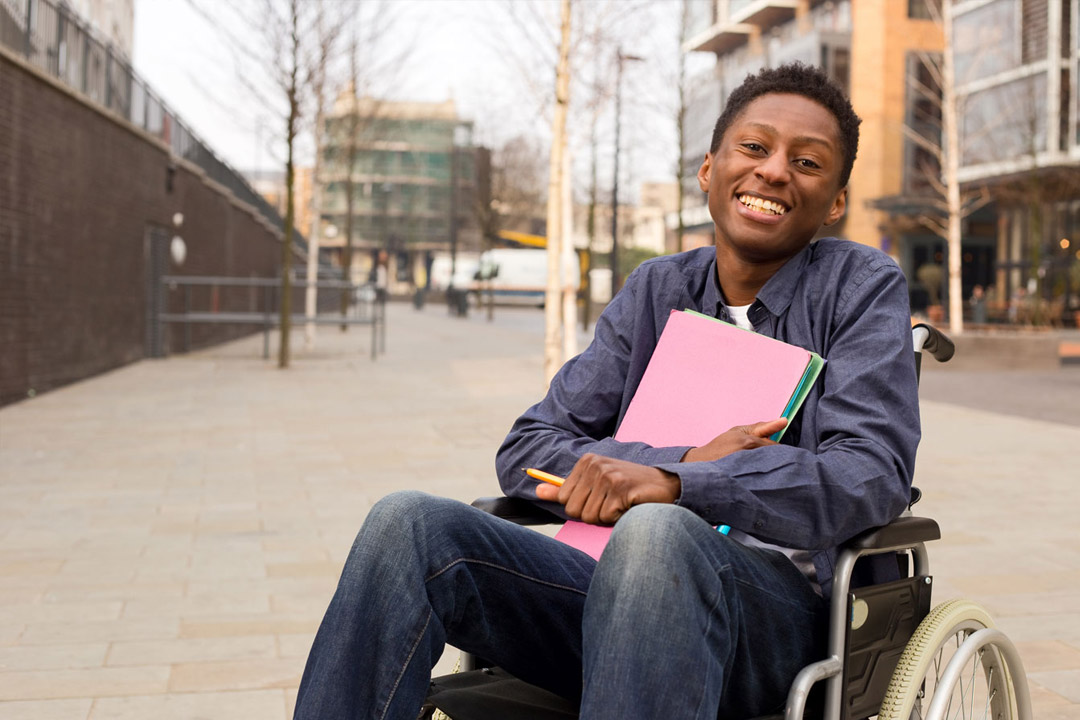Social Participation through Stays Abroad – the Southern Hessen Vocational Training Centre is a Place of Professional Inclusion
Erasmus+ projects can help pupils with disabilities develop professional skills and gain valuable work experience abroad.
Organisation | Berufsbildungswerk Südhessen GgmbH |
Country | Germany |
Project title | Wien Work und Berufsbildungswerk Südhessen – Fortsetzung einer bewährten Zusammenarbeit |
Project number | 2017-1-DE02-KA102-003787 |
Format | VET learner and staff mobility |
Sector | Vocational education and training |
Target group | Pupils with disabilities |
Erasmus+ project results | https://erasmus-plus.ec.europa.eu/projects/search/details/2017-1-DE02-KA102-003787 |
This article was originally published on the official website of the German Erasmus+ national agency in the field of vocational education and training and adult education.
The Southern Hessen Vocational Training Centre (BBW) is a non-profit limited liability company based in Karben near Frankfurt am Main. One of the main aims of the rehabilitation provider is to support young people with a disability in the transition from school to work, during training and in the subsequent integration as skilled workers into the labour market. To this end, the BBW offers its trainees an exchange with the partner organisation Wien Work in order to gain work experience abroad in Europe.
Dare to take a step abroad
With around 280 staff, the BBW is currently supporting more than 400 young people during their training in more than 30 different apprenticeships. In order to offer training that is as practical as possible, training in one’s own workshops and training establishments is combined with intensive training phases in business enterprises. Most participants are young people with a learning disability, a mental illness or the autism spectrum, who usually face multiple obstacles due to their disabilities.
On the labour market, it is becoming increasingly important to gain experience outside your own apprenticeship and develop international professional skills. This step is not easy, especially for young people with disabilities. The mobility project can only succeed with a good partner organisation that is familiar with working with this target group. To this end, the BBW has a long-standing cooperation with Wien Work in Austria.
Find suitable partners
The selection of partner organisations must be well prepared and coordinated, as the focus is on the exchange of young people with special needs for support or disabilities. Contacts between the Southern Hessen Vocational Training Centre and Wien Work were established in 2008 with the help of an external consultancy company from Brussels. Due to the agreement on the content and objectives of the company, a face-to-face meeting was held at management level. It quickly became clear how much potential there was to gain professional knowledge on both sides. Therefore, since 2009 there has been regular professional exchange at management, staff and trainee level.
When undertaking stays abroad for trainees, both partner organisations have complementary know-how about the other system, which greatly enhances the content of vocational training. Examples of such skills enhancement include better integration in the work of young and adults with disabilities or enabling more practical training.
A job opportunity in a neighbouring country
In the last two years, twelve trainees have each been offered the opportunity to spend time abroad. Some of them had the status of severely disabled persons (up to 100% disability grade). The trainees came from a wide range of professions: wood, paint, catering, textile cleaning and the green sector.
Due to their disabilities, the trainees were given on-site educational and technical care by two accompanying persons. Participants in the exchange were actively involved in preparation from the outset and were able to discuss professional and cultural requirements in advance at joint meetings. In addition to preparing the content, organisational matters were also discussed, as it was the first major trip abroad for many.
“International professional competence and mobility are becoming increasingly important in today’s world of work. However, this step is not always easy, especially for young people with disabilities. For our participants, the exchange of trainees is a unique experience and an important step in personal development, especially because many travel abroad for the first time.” Torsten Denker, Managing Director of the Southern Hessen Vocational Training Centre.
Added value at various levels
The objectives of the exchange included three areas: the professional level, the personal level and, again differentiated, their own mobility. Young people with special needs, such as those with a mental illness, are often not very flexible and are rarely mobile. Enabling this target group to gain a wide range of experiences in other European countries has a huge impact on professional and personal appearance.
Professional level
Through exchanges with Austrian colleagues, the participants acquired new professional knowledge and skills typical of the country. They learned about other work processes and assignment locations. This will have a lasting impact on their continued professional flexibility, as they repeatedly face situations where they have to adapt to new structures and workflows.
Personal level
After arriving in Vienna and in the new working environment, participants had to integrate into unknown, existing teams and adapt to new realities. As everyone managed to cope with this situation, this positive experience and the independent management of the stress situation increased participants’ self-confidence. A sense of being a stranger in a new environment has also led many to behave more respectfully towards people of different nationalities and cultures.
Mobility
Participants were able to experience first-hand that mobility is also feasible for them. Everyone moved around in a foreign city successfully. This positive experience has strengthened confidence in one’s own capabilities and dispersed fears. Mobility as an everyday part of working life has now become a bit more self-evident.
“Successful management of this adventure strengthens the self-esteem of our trainees, and that is exactly what counts. This is just one example of how we implement inclusion in our company and in our daily lives and provide important incentive for the implementation of the UN Convention on the Rights of Persons with Disabilities.” Torsten Denker, Managing Director of the Southern Hessen Vocational Training Centre
